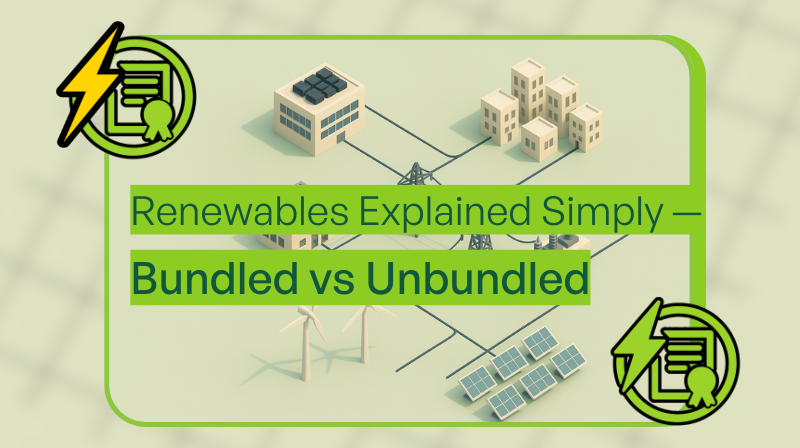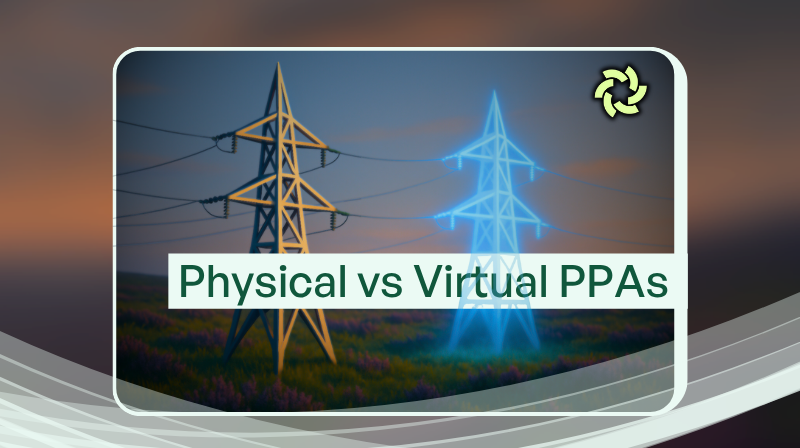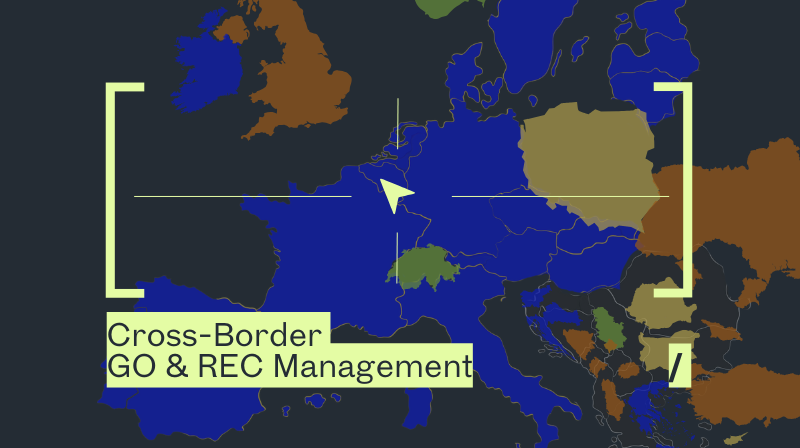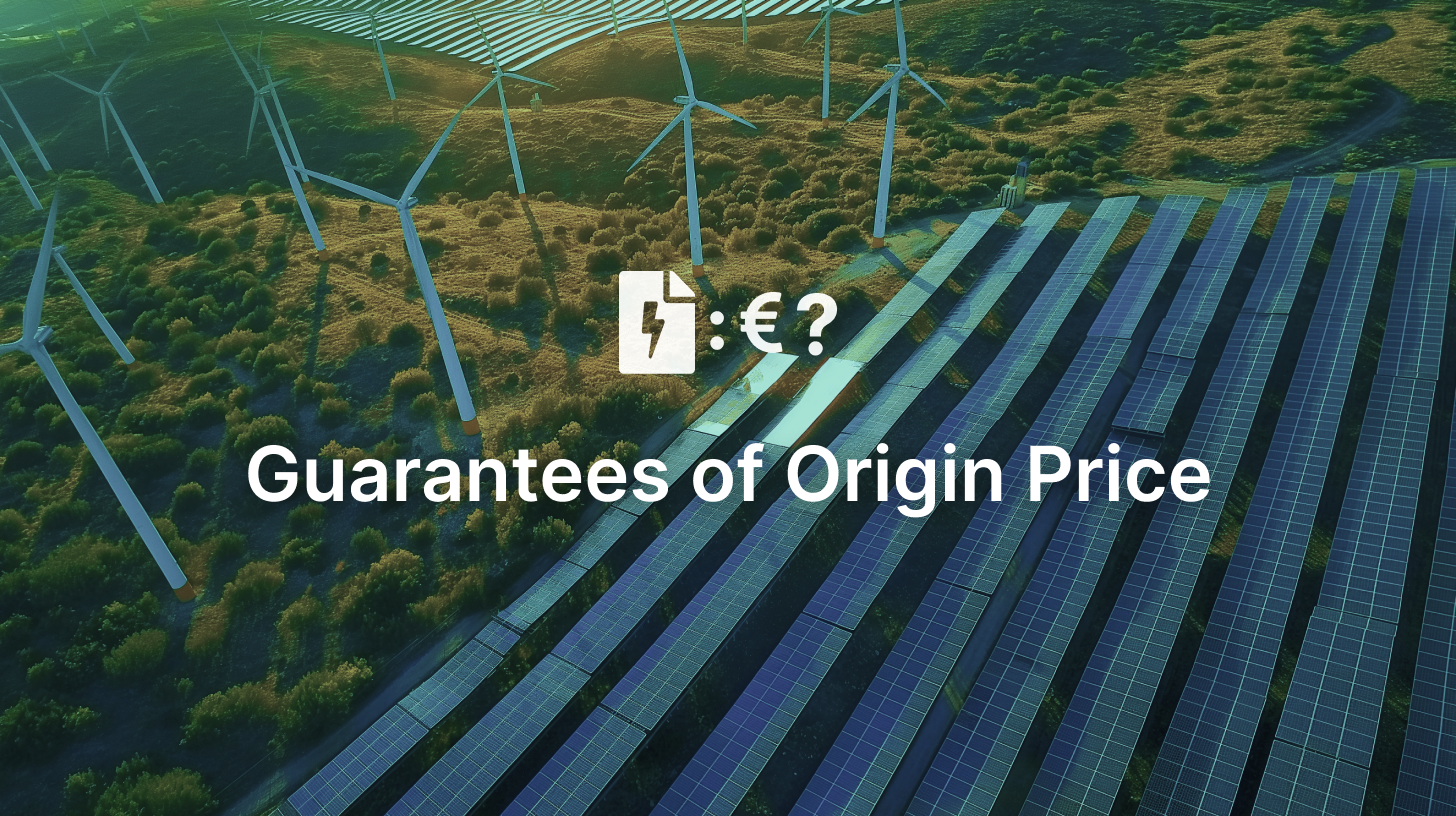.png)
.png)
How Will Trump Affect the Renewable Energy Certificate (REC) Market?
On Monday, January 20, 2025, Trump declared a national energy emergency and ordered the U.S. to withdraw from the Paris climate agreement. This time, it's much more immediate than 2017's four-year wait, requiring only a 12-month statutory delay. Either private renewable demand steps up quickly, or the energy transition could seriously stall as the fossil fuel industry abides by Trump's directive to "drill, baby, drill" — we still have hope, though. Let's take a look why we see some positives:
This isn’t the first time, and it wasn’t popular before.
After the 2017 withdrawal, tech leaders united against Trump, including Elon Musk! And whilst Musk has since turned towards MAGA, he doesn’t represent the entire industry. Apple's Tim Cook declared climate change "one of the great challenges of our time," while Microsoft's Satya Nadella committed to emission reductions regardless of federal policy. In 2019, a similar roster of tech leaders also asked Trump to remain in the Paris Agreement. Even if you can’t shake Musk’s stance from your mind, it might not be as negative towards environmental assets as you may think. Two of his companies, Tesla and Solar City, both make revenues from selling environmental assets (carbon credits and RECs, respectively). Knowing Musk, it's unlikely he’d take a negative stance towards anything that has actively benefited his firms to the tune of billions, despite his political posturing.
As for the other tech moguls that spoke out - nobody likes empty words, and these commitments should definitely keep evolving. But, they’re not totally performative - Microsoft is doubling down on its ambitious strategy to meet its ambitious goal of 100% renewable energy by 2030 with a 20-year agreement with Singapore’s largest solar project. Google's maintained adoption of 100% renewable energy sources and streamlined 100 day procurement sets a strong example, while Meta's expansion to 12GW of renewable energy through partnerships like their ENGIE Texas agreement signals the scale of corporate ambition required. As the gravity of the situation sets in, it’s likely that others will continue to work in the right direction — and with REC cancellations increasing YoY, it’s clear that corporate appetite for RECs continues to creep upwards despite noise on social media.
Can market forces counterbalance this government?
It’s likely they can. A few new critical factors are at play, however. While the inflation reduction act provides substantial subsidies, Trump's sweeping actions against this - including his January 20th freeze on wind turbine permitting and coastal lease halts - need to quickly force market adaptation. These restrictions, combined with Saudi Arabia's hardened fossil fuel stance at COP29 (which notably failed to call for a transition away from fossil fuels), will see a tightening of added renewable supply, pushing the global renewable & REC market towards innovation and demand. History supports this prediction - during Trump's first term, "the EU became more ambitious; China was happy to evolve from co-leadership with the U.S. to sole leadership; India did not retrench; and although Brazil backed off its pledge, that was because of the election of Jair Bolsonaro, himself a climate skeptic." The climate situation has only gotten more urgent — as documented in the Harvard analysis, the Biden administration had just strengthened NDC targets, the emission reduction plans that each country submits under the Paris Agreement, to 61-66% by 2035 before leaving office.
Remember, states have power, too!
Following the 2017 playbook, when California and New York advanced aggressive renewable goals, state-level RPS requirements and regional initiatives must now take center stage, crucial for maintaining climate progress, especially given that Trump's actions against renewable energy primarily affect federal lands and water, limiting his reach and signalling an urgent path for climate-positive state decision-making. Additionally, Biden’s Inflation Reduction Act saw a disproportionate amount of clean energy manufacturing investment and job creation happen in swing states, making it politically unpopular and economically painful even for Republicans to backtrack — a lot of progress has been set in motion already.
Don’t forget energy sovereignty
Renewables are about more than just avoiding the carbon emissions behind climate change. Energy sovereignty is a global challenge of increasing importance to governments as they recognise the fact that an independent local supply can increase resilience against a number of factors; from blackouts caused by weather events such as winter storms (as seen in Texas), to less reliance on hostile state energy, fossil fuel market volatility, and energy warfare tactics. For Europe, lacking significant fossil fuel reserves that must be imported, the path to true energy sovereignty lies in a combination of renewables and nuclear power, freeing the continent from vulnerability to the geo-politics of energy. Similarly, while America's domestic fossil fuel production offers some protection from global market shocks, Trump has made clear his protectionist desires for a home-grown economic boom — which, as his economy will naturally realise, is only truly solved by resilient energy systems that can't be weaponized by adversary nations, or disrupted by market fluctuations.
Let's not lose hope
Trump's withdrawal isn’t great, but REC markets have a strong opportunity to prove this administration is on the wrong side of history — and that growing demand still exists for renewable certification — allowing the industry to develop with increased sophistication and continued voluntary involvement. Even with Trump seeking to boost fossil fuel production, renewable electricity is continually becoming a cheaper choice, definitely spooking the vested fossil fuel interests in government who are clearly working harder to push their agenda.
No matter how hard they try, certificate trading will always provide an immediate path for climate action — along with the combination of state policies, corporate commitments, and international ambition ensuring climate progress can continue. Optimism and momentum will keep us on the right track.
.svg)



.png)




.png)


.png)

.png)


.png)



